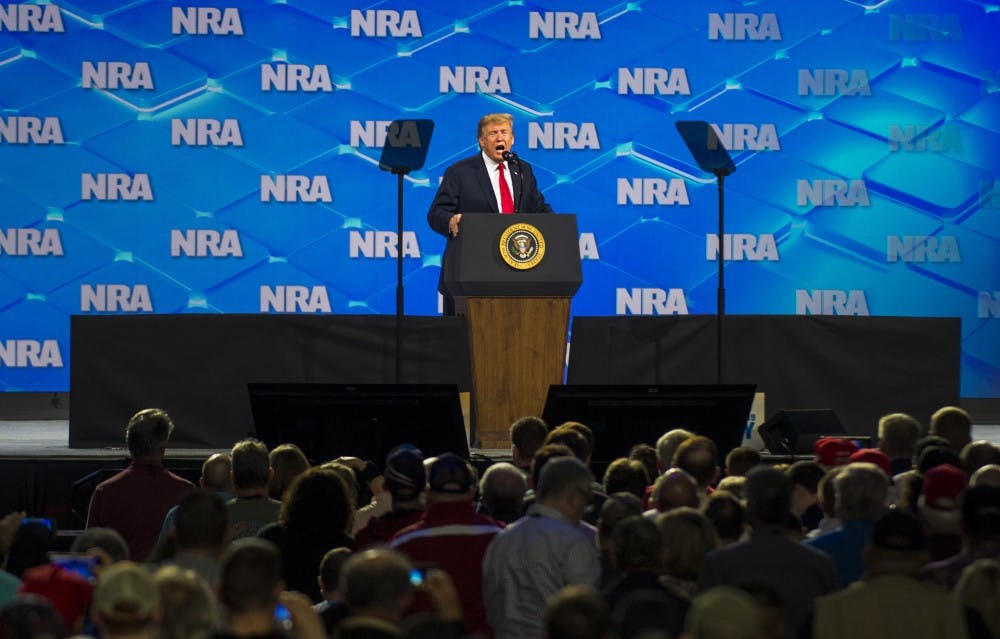By Eli Stokols and Chris Megerian
Los Angeles Times
BIARRITZ, France – President Trump said he had "second thoughts" about his escalating trade war with China — a remark that administration officials rushed to walk back — as the simmering G7 summit here threatened to overheat Sunday with the arrival of Iran's foreign minister.
Mohammad Javad Zarif, who was Iran's lead negotiator on the nuclear deal that Trump scuttled and European leaders have attempted to salvage, made a surprise visit to the beachfront resort in western France where world leaders are holding their annual meeting.
French officials confirmed they invited Zarif, a move sure to anger Trump, whose administration has been intent on isolating Iran and who hates to share the limelight.
"No comment," Trump said curtly when asked about Zarif.
His "second thoughts" comment came during the announcement of a tentative new trade agreement with Japan, an event that appeared to have been hurriedly put together as administration officials tried to squelch headlines about Trump's apparent doubts over the latest escalation of his yearlong trade war with Beijing, which has unsettled global markets and U.S. business leaders.
"We've been working on a deal with Japan for a long time. And we've agreed in principle," Trump told members of the press pool covering his events, who were suddenly summoned to hear from him and Japanese Prime Minister Shinzo Abe.
U.S. officials said the deal involving agriculture, industrial tariffs and digital trade could be formalized before the United Nations General Assembly next month.
The Japanese described the deal more cautiously.
"We still have some remaining work that has to be done at the working level," Abe said, but he confirmed that his country planned to increase its purchases of U.S. corn.
Conversations with Iran have been a top sticking point during the G7 summit. French President Emmanuel Macron has been trying to defuse tensions with Iran, which have included the seizure of oil tankers in the Strait of Hormuz, but Trump made it clear that wasn't happening with his blessing.
"We'll do our own outreach," he said. "But you can't stop people from talking. If they want to talk, they can talk."
Zarif's arrival came hours after Trump seemed to express regret about the China trade war. Asked if he had second thoughts, Trump answered in the affirmative, a surprising admission for a president who has appeared allergic to self-doubt. Reporters asked a second time to ensure that Trump had heard the question correctly.
"Yeah, sure, why not?" he responded. "Might as well. Might as well. I have second thoughts about everything."
Trump went on to say that he had "no plans" for now to declare a national economic emergency that might allow him to punish U.S. companies that ignore his demand that they stop doing business in China. He also said he hadn't ruled out doing so if the situation deteriorated further.
On Friday, in a belligerent series of tweets that caused the stock market to nosedive, Trump "ordered" U.S. companies to start pulling operations out of China.
"If I want, I could declare a national emergency," he said Sunday. "I think when they steal and take out intellectual property theft – anywhere from $300 billion to $500 billion a year – and when we have a total loss of almost a trillion dollars a year, for many years this has been going on. And in many ways that's an emergency."
Trump added: "Actually we're getting along very well with China right now. We're talking. I think they want to make a deal much more than I do."
White House officials quickly tried to walk back Trump's comment on having "second thoughts." Press Secretary Stephanie Grisham said in a statement that Trump's answer had been "greatly misinterpreted."




